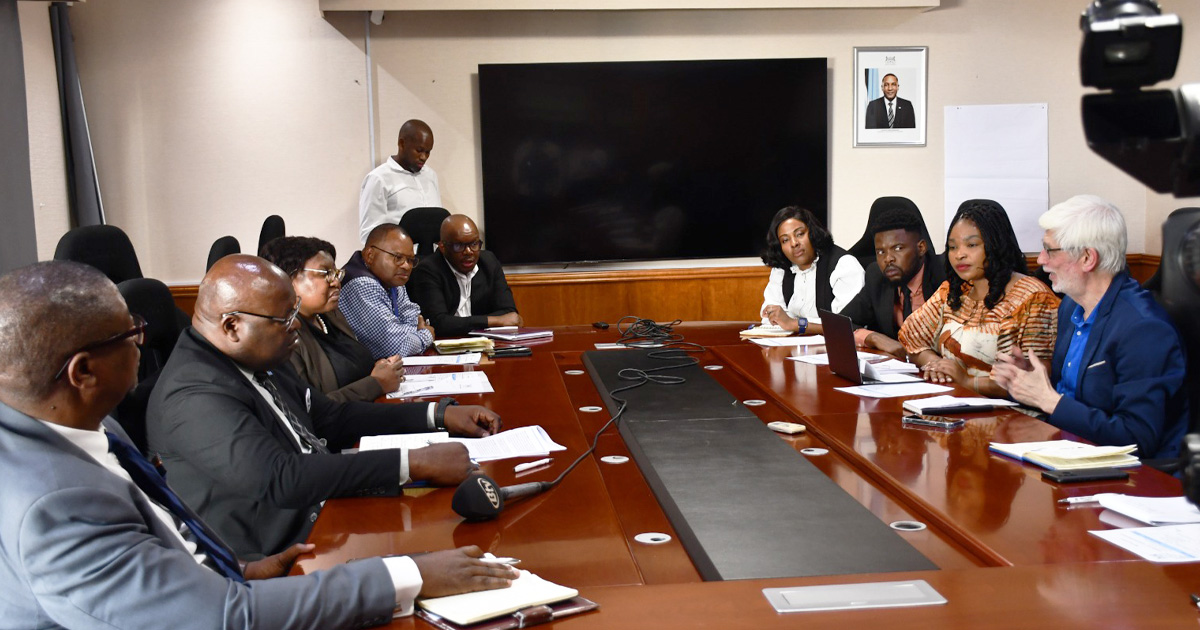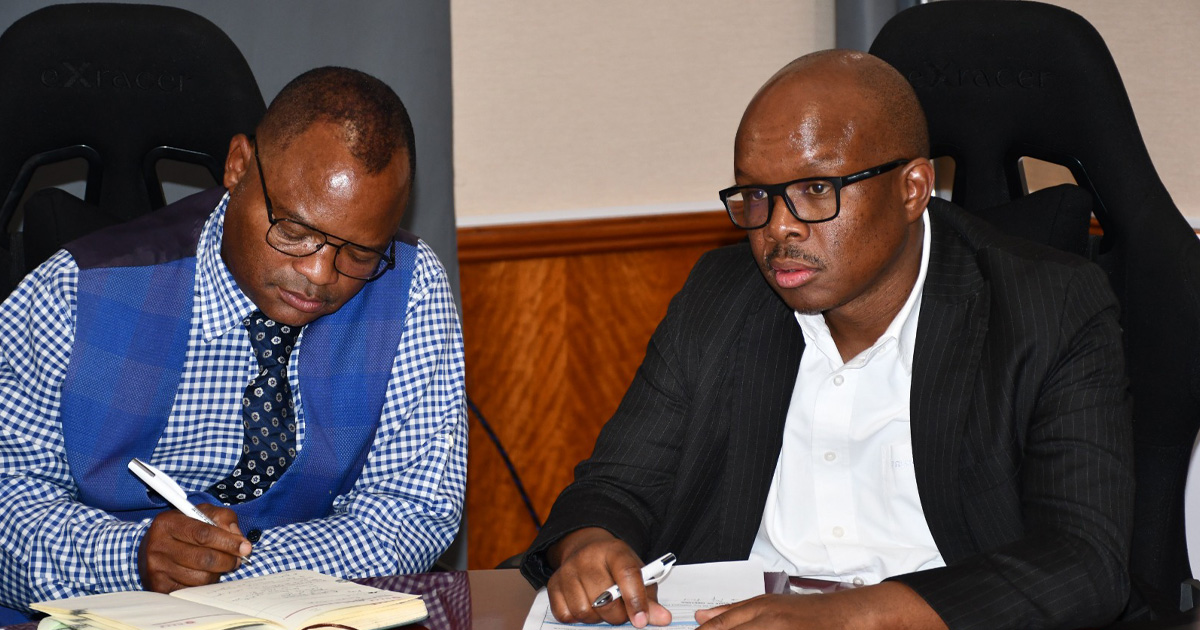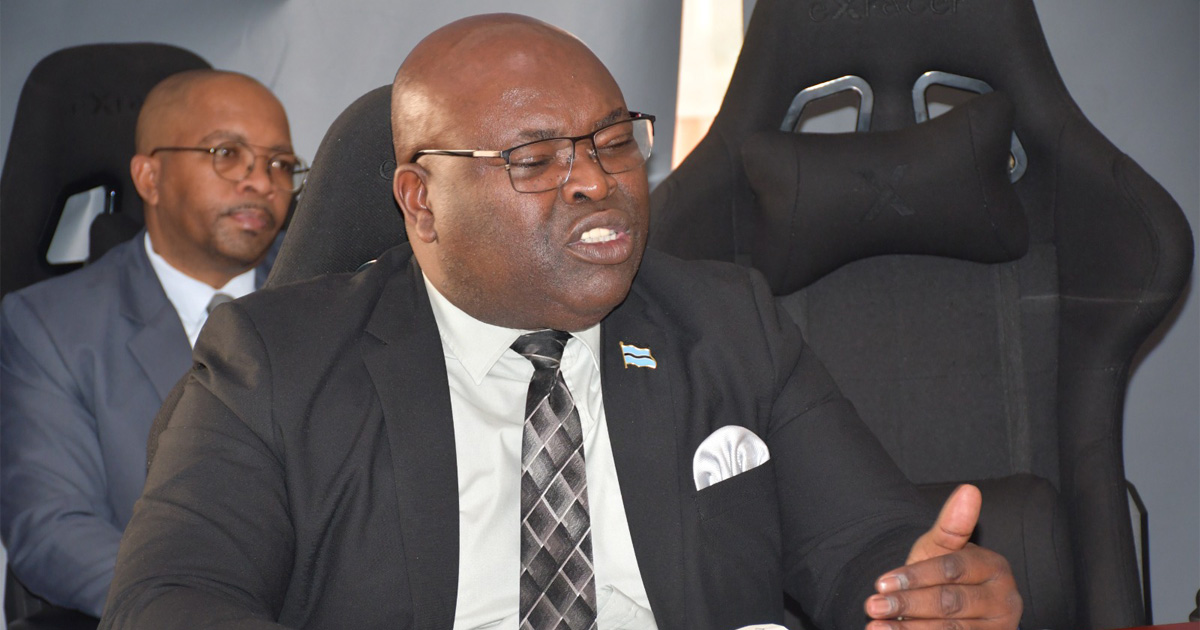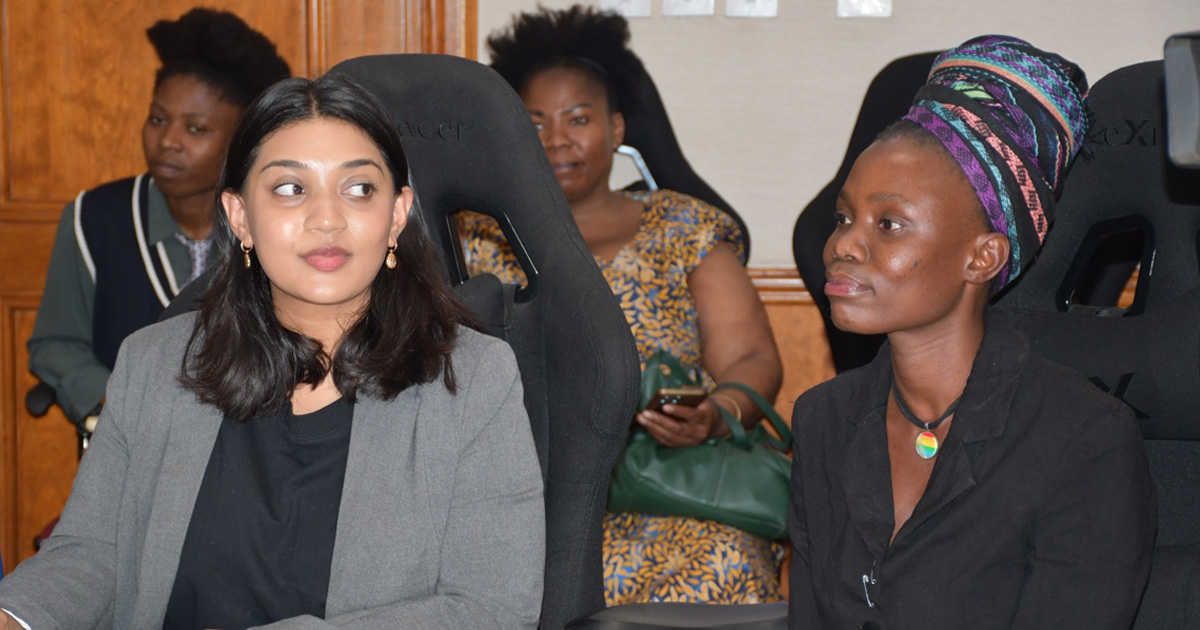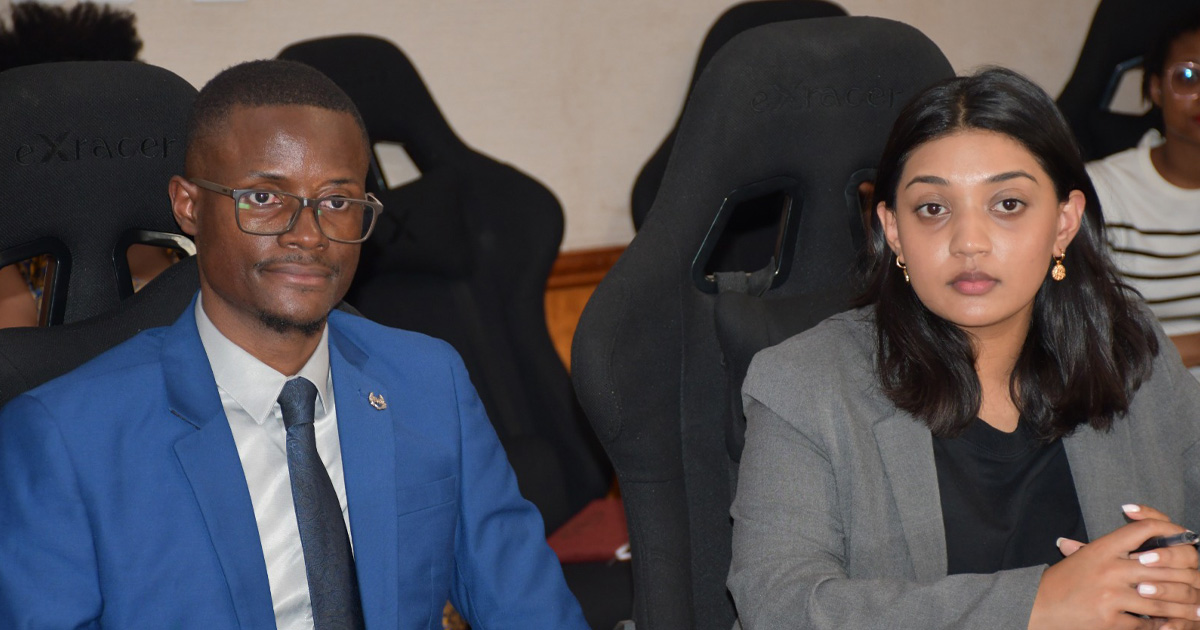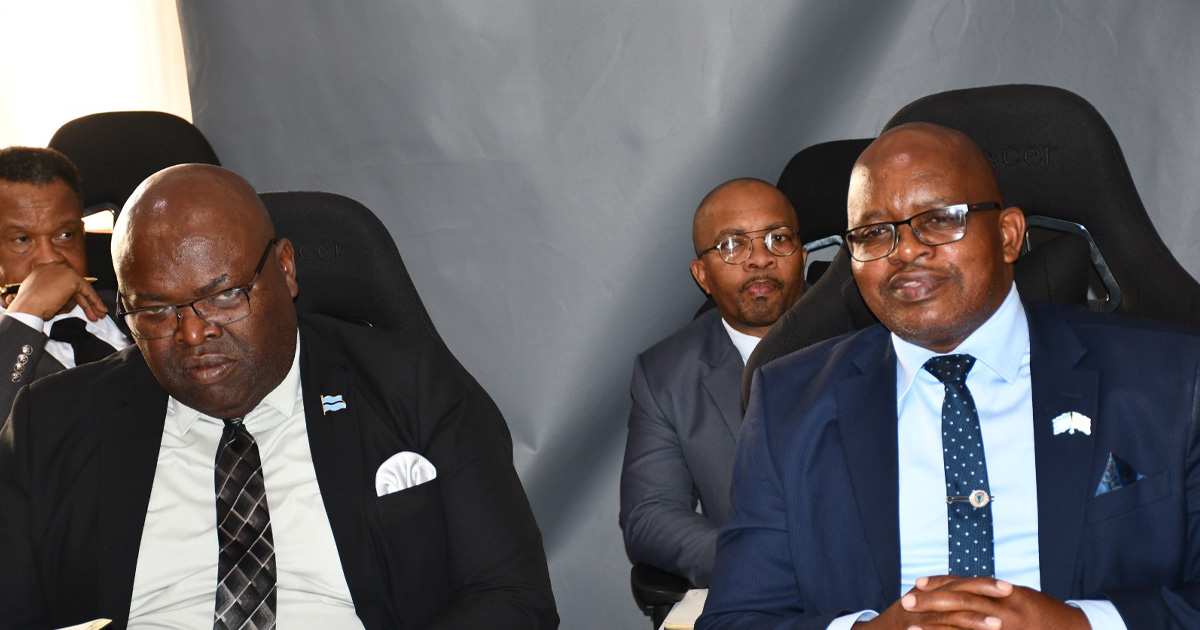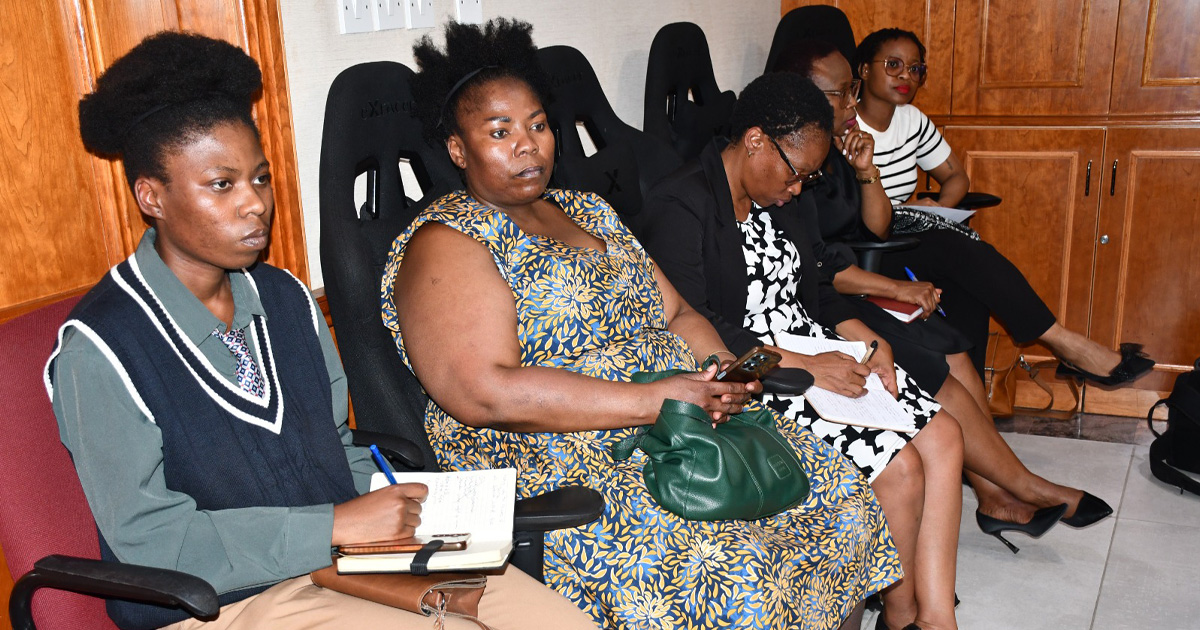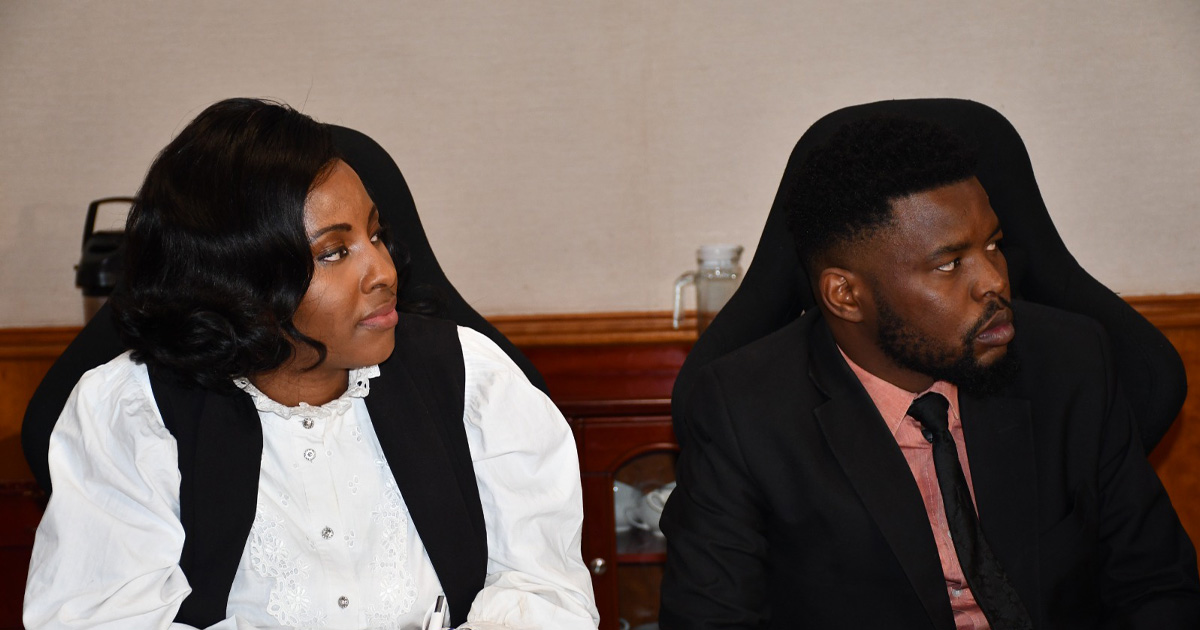Between 27 August and 4 September 2025, the Centre for Human Rights, Faculty of Law, University of Pretoria undertook a focused series of engagements with stakeholders in Botswana aimed at strengthening the country's human rights architecture. The mission sought to build momentum around the ratification of outstanding African Union human rights instruments. Central to these engagements was the advocacy for Botswana to ratify the Protocol to the African Charter on Human and Peoples’ Rights on the Establishment of an African Court on Human and Peoples’ Rights, and to deposit the optional declaration under Article 34(6) of this Protocol, which would grant individuals and civil society organisations the right to access the African Court directly. These activities took place in the context of Botswana’s recent political transition, marked by the 2024 general elections and the rise to power of a new administration under President Duma Boko. These elections were widely celebrated as a democratic milestone in the region, renewing hopes for progressive policy shifts and a more robust human rights agenda under the new leadership.
Online Launch of Campaign: Webinar on Wednesday 27 August 2025
The campaign was launched with a high-level webinar on 27 August 2025 organised in collaboration with local stakeholders, aimed at galvanising public awareness and stakeholder interest in Botswana’s engagement with regional human rights mechanisms, particularly the African Court. The webinar brought together a diverse audience of legal practitioners, indigenous representatives, human rights defenders, and civil society actors from across Botswana.
The event was opened by Mr. Brian Kibirango, Manager of the Centre’s Litigation and Implementation Unit, who underlined the unique opportunity presented by Botswana’s current political climate. He cited the peaceful transition of power and new government initiatives—such as the establishment of the Ministry of Child Welfare and the respectful burial of Pitseng Gaborekwe in the Central Kalahari Game Reserve—as indicators of a renewed commitment to justice. Kibirango made a compelling case for Botswana to take a leadership role in Africa by ratifying the African Court Protocol and making the Article 34(6) declaration, thereby empowering ordinary citizens, especially marginalised communities, to seek redress through regional mechanisms.
Professor Frans Viljoen delivered the keynote address offering a candid and nuanced analysis of Botswana’s human rights record. He acknowledged the country’s strong domestic systems and high rankings on African democracy indices whilst also flagging the country’s limited participation in international human rights mechanisms. While Botswana has ratified six of the nine core United Nations treaties, its record with African Union instruments remains comparatively weak. He argued that Botswana’s failure to ratify the African Court Protocol and deposit the declaration places it in the company of states with less impressive human rights records, undermining its credibility as a regional leader.
The webinar concluded with a collective call for the formation of a national alliance to sustain advocacy around ratification and implementation.
Engagement with the Office of the Ombudsman: Wednesday 3 September 2025
Building on the momentum of the webinar, the Centre’s delegation travelled to Gaborone for in-person engagements. The first meeting took place on Wednesday, 3 September 2025, at the Office of the Ombudsman. This meeting was attended by the Ombudsman, Advocate Stephen B. Tiroyakgosi; the Assistant Ombudsman, Mr. Oscar M. Gaselabone; and two other senior officials. Dr. Dorcas Basimanyane introduced the Centre and its mandate, setting the stage for a substantive dialogue led by Brian Kibirango, who presented the case for ratifying the African Court Protocol and depositing the Article 34(6) declaration to provide direct access to the African Court for individuals and NGOs. To underscore the importance of the Article 34(6) declaration, Kibirango noted that the majority of cases before the African Court—over 99%—are brought by individuals.
Kibirango contextualised the discussion by referencing Botswana’s strong ranking on the 2024 World Justice Project’s Rule of Law Index—51st globally and 4th in Sub-Saharan Africa—and commended the country for its ratification of the Maputo Protocol. He highlighted Botswana’s potential to lead and shape continental human rights developments.
The Ombudsman welcomed the dialogue and affirmed that, under Section 10(2)(c) of its enabling legislation, the Office is mandated to advise on the ratification of international human rights instruments. The meeting explored Botswana’s past hesitation, particularly considering the SADC Tribunal's dissolution, which had raised concerns about external jurisdiction. Nevertheless, the Ombudsman acknowledged that there is increasing recognition within government circles that ratification should not be seen as a surrender of sovereignty but as a proactive affirmation of Botswana’s leadership in upholding justice.
Concerns were raised regarding the quality and contextual relevance of decisions from international courts. However, it was agreed that greater participation in such mechanisms allows for constructive engagement and influence, particularly in shaping the composition of the Court, as envisaged. Kibirango responded by noting that reform and accountability of African human rights institutions are best driven from within, observing that Botswana’s ratification of the Court Protocol and active participation would enhance the legitimacy and responsiveness of the African Court. The need to guard against the rise of anti-rights narratives was also acknowledged.
The conversation also turned to the importance of grassroots engagement. The Assistant Ombudsman emphasised the need for consultation with ordinary citizens, including marginalised communities, to ensure broad-based support. The Ombudsman indicated a strong interest in ensuring that the advice provided to government is both thorough and reflective of the current realities and aspirations of the people.
In the sum, this engagement was climaxed with general agreement that Botswana must not fall behind and be grouped with countries known for resisting regional human rights norms.
Civil Society Strategy Session: Wednesday 3 September 2025
On the evening of Wednesday 3 September 2025, the Centre hosted an over-dinner meeting with over twenty non-state actors at Hotel 4:30 in Gaborone. This gathering brought together lawyers, youth leaders, women’s rights advocates, indigenous community representatives, and child rights organisations—many of whom had also participated in the webinar on 27 August. The purpose of the dinner was to collectively reflect on the engagements with government officials and to strategise on sustaining momentum in the advocacy for ratification and declaration. The dinner reinforced the strong role that Botswana’s civil society can play in advancing rights-based reforms and holding the government accountable to its human rights commitments.
Participants shared insights on legal, political, and community-level entry points for influence. A shared commitment emerged to continue sensitising the public, lobbying policymakers, and supporting the government’s eventual harmonisation process.
Engagement with the Ministry of Justice: Thursday 4 September 2025
The last of these engagements was held on Thursday, 4 September 2025. This was in form of a formal meeting with senior officials at the Ministry of Justice, including the Minister and Deputy Minister of Justice, the Permanent Secretary, Deputy Permanent Secretaries, and the Deputy Director of Human Rights. The CHR delegation was led by Professor Frans Viljoen, and was joined by the non-state actors met and engaged over the past days.
Professor Viljoen delivered a detailed briefing presenting the case for Botswana making the optional Article 34(6) declaration and to explore possible pathways for harmonising the Protocol with domestic law. He highlighted that such a move would reaffirm Botswana’s leadership in democratic governance and constitutionalism, while allowing its citizens access to a regional human rights remedy in cases where domestic mechanisms may fall short.
The Minister of Justice welcomed the engagement and described the meeting as timely, coming at a moment when Botswana is finalising its National Human Rights Strategic Plan. He reaffirmed the government’s commitment to democratic values and social justice, noting that the administration is firmly pro-poor and rights-based. While Botswana has already ratified the Protocol establishing the African Court, the Minister noted that internal legal assessments are still ongoing regarding the implications of the Article 34(6) declaration and its compatibility with the Constitution.
The Deputy Minister echoed these sentiments, expressing appreciation for the Centre’s technical guidance and openness to further collaboration. He pointed to Botswana’s existing use of international instruments in court decisions as evidence of the country’s commitment to international standards. The Deputy Minister also underscored the importance of working with independent institutions such as the Office of the Ombudsman and welcomed the Centre’s proposal for a five-day capacity-building programme, particularly focusing on indigenous peoples’ rights.
While no immediate commitment was made on depositing the declaration, the tone of the meeting was constructive and forward-looking. The Ministry confirmed its willingness to continue engaging with the Centre and other partners as it considers the legal and constitutional steps necessary for implementation.
Reflections on Government Posture
Although the Government of Botswana has yet to make a formal public statement committing to the Article 34(6) declaration, the overall posture during the engagement was one of cautious openness. Officials were receptive to external input, recognised the value of regional accountability mechanisms, and demonstrated an awareness of the need for broader consultation, particularly with historically marginalised communities.
The government’s emphasis on harmonisation with domestic law reflects a pragmatic approach, rather than ideological resistance. This position offers a meaningful entry point for future dialogue and technical assistance. The Centre’s engagements were timely, aligning with Botswana’s internal policy planning and reinforcing the potential for significant human rights reforms in the foreseeable future.
Conclusion
The Centre for Human Rights’ advocacy mission in Botswana has sparked renewed dialogue and reflection on the country’s role within the African human rights system. Through engagements with government institutions, independent oversight bodies, and civil society organisations, the mission highlighted the urgent need—and clear opportunity—for Botswana to take decisive steps toward full alignment with regional human rights norms.
The meeting with the Office of the Ombudsman was especially significant, given its constitutional mandate to advise the government on international treaty ratification. The Ombudsman expressed openness to re-examining past hesitations and demonstrated a nuanced understanding of both the risks and benefits associated with the African Court Protocol and the Article 34(6) declaration. Importantly, the Ombudsman acknowledged the importance of broader public and community consultations, particularly with indigenous communities who are often most in need of accessible regional remedies. The Office expressed a willingness to provide sound, evidence-based advice to the government on the matter, recognising that Botswana's leadership in the region would be enhanced by a more proactive posture toward continental accountability mechanisms.
Across all engagements, the government’s overall posture was one of cautious openness. While lingering concerns about external jurisdiction and domestic legal compatibility remain, there is increasing recognition that participation in regional mechanisms like the African Court can complement, rather than undermine, Botswana’s strong domestic systems. Additionally, there was consensus that Botswana’s influence would be better exercised from within the African Court system, helping to shape its development and strengthen its credibility.
With a progressive political transition underway, an active civil society, and the development of a new National Human Rights Strategic Plan, Botswana is at a pivotal moment. The momentum generated by this mission offers a rare window of opportunity to secure meaningful commitments toward ratification and implementation.
The Centre for Human Rights remains committed to supporting Botswana in this process through continued technical engagement, capacity-building initiatives, and stakeholder coordination. The immediate next steps include supporting public consultations, enhancing understanding of the legal and procedural implications of Article 34(6), and equipping both state and non-state actors with the tools necessary to advance this important agenda.
For further information, please contact:
Brian Kibirango,
Doctoral Researcher and Manager - Litigation and Implementation Unit,
Centre for Human Rights
Email: brian.kibirango@up.ac.za
Dr. Dorcas Basimanyane, Post-doctoral Researcher,
Centre for Human Rights
Email: basimanyane.k@up.ac.za
